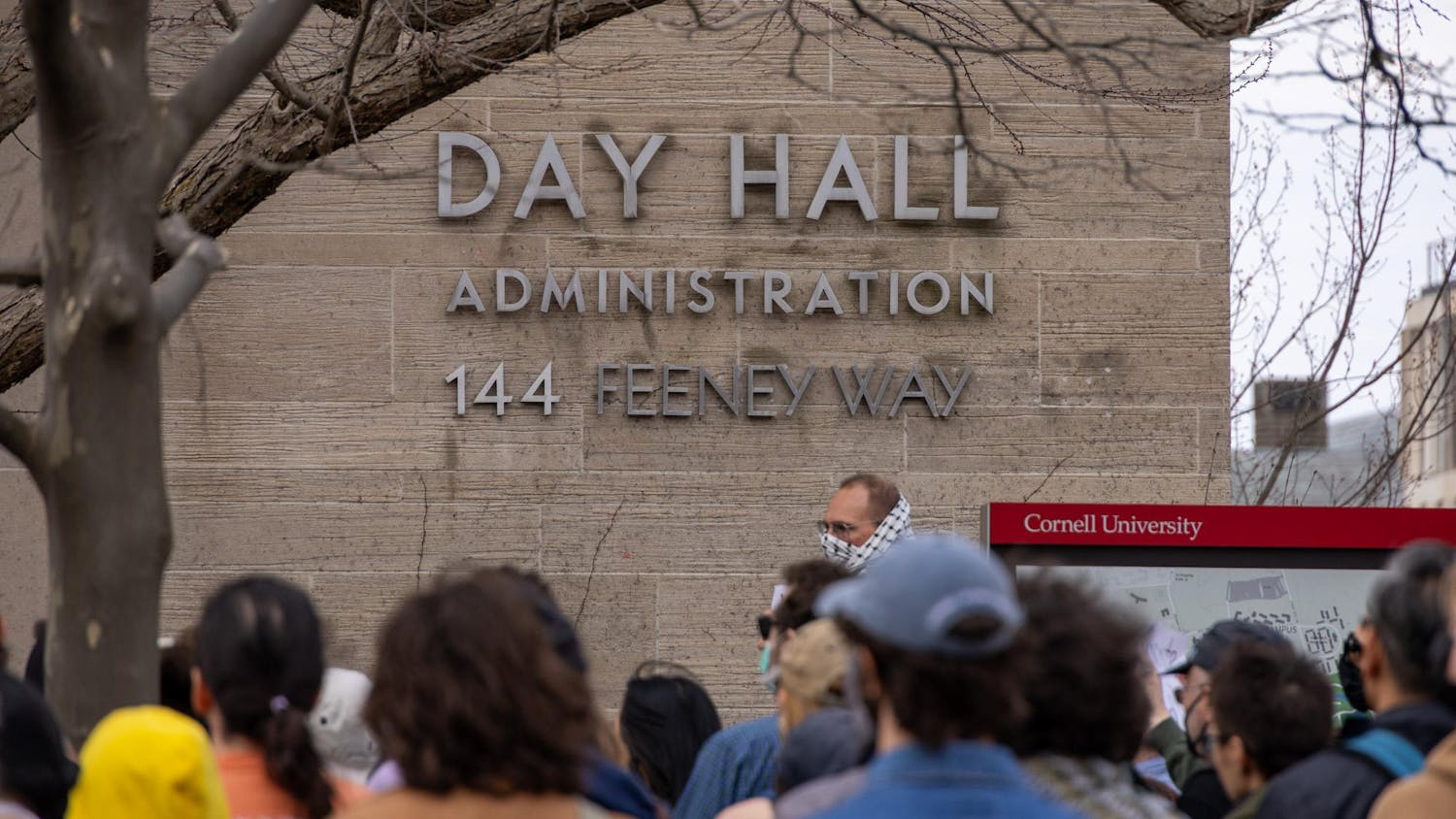Correction appended
Amnesty International at Cornell is joining Cornell Organization for Labor Action to pen a letter to acting President Michael Kotlikoff, requesting that he pressure the Qatari government to release poet Mohammed al-Ajami from prison.
Ajami received a 15-year sentence in February of 2013 after he was tried for unknown charges. He had previously been arrested for writing poems insulting the then-ruling Emir of Qatar and supporting the Tunisian revolution that began the Arab Spring, according to the letter.
International organizations from Amnesty International to the United Nations are also calling for Ajami’s liberation, the letter said.
Christopher Hanna ’18, co-president of AIC, said the organization was asked to write the letter by Freedom Now — a non-profit organization that works to free people imprisoned for their political or religious beliefs — because of Cornell administration’s ties to the House of Thani, Qatar’s ruling family.
“We are particularly concerned that Cornell has ties to a ruling family that is responsible for the incarceration of a student dissident who was studying abroad at the time of his alleged crimes,” Hanna said.
Hanna said he believes pressure from Cornell will be able to influence the Qatari government’s decision.
“This [pressure] could come in the form a phone call or a statement of support,” Hanna said. “We think this is feasible, given Cornell’s deep ties to the Qatari regime. After all, Qatari royal Sheika Moza sits on the Board of Overseers for Cornell’s campus in Qatar.”
Ana Jimenez ’18, a member of COLA, said students have a responsibility to encourage the University to call out Qatari officials’ human rights violation.
“We, as Cornell students, have a responsibility to urge our University to use its powerful affiliations and regional influence via Weill Medicine in Qatar to uphold the values of egalitarianism and belief in the potential of written and spoken expression,” Jimenez said.
Alfie Rayner ’19, member and organizer of COLA, agreed, adding that the Qatari government needs to assume responsibility for its actions against its civilians.
“From labor abuses in the World Cup construction, to the unregulated kafala system, to the detention of Mr. Ajami, the Qatari government has shown a blatant lack of accountability towards its citizens and migrant workers who provide the nation’s infrastructure,” Rayner said.
Hanna added that although Qatar claims to be progressive, the country has a history of human rights offenses.
“The Qatari regime portrays its country as being one of progress and internationalism, but its stained human rights record suggests otherwise,” Hanna said.
Here is the student groups' complete letter:
Dear Acting President Kotlikoff,We ask for your assistance in securing the release of a prisoner of conscience.In 2011, poet and third-year student of literature at the University of Cairo Mohammed al-Ajami was arrested by Qatari security forces. Mr. al-Ajami — the father of two daughters and two sons, the youngest of whom was born after his arrest — was eventually charged with “inciting the overthrow of the ruling regime” and “criticizing the Emir” through two poems performed at a private slam poetry event in Cairo, Egypt.The poems in question did, in fact, express sympathy for the Arab Spring uprisings that famously gripped nations throughout North Africa and the Middle East that year. As an artist and man of conscience, Mr. al-Ajami used the spoken word to envision a more perfect and just future. One of his pieces, dubbed “The Jasmine Poem,” offers stirring support for those who risked death to advance democracy in Tunisia: “So, rebel, tell them, tell them in a shrouded voice, a voice from the grave: tell them that tragedies precede all victories.”Following a trial and appeals process that were rife with blatant violations of domestic and international law, Mr. al-Ajami was sentenced to fifteen years of imprisonment in Doha Central Prison. Placed in solitary confinement, he now sits in a cell less than ten miles from Cornell’s medical campus. In a poem written behind bars, Mohammed provides us with a call to action: “Tell your children, east and west—and keep telling them, until the birds sing it in the branches—that a people without opinions is nothing but a herd that’s thirsty, yet blind to the nearby oasis.”The Qatari regime intended to make an example of Mr. al-Ajami, hoping to quell internal dissent and beat back demands for increased freedoms for its citizenry. It appears that it has accomplished the opposite outcome, igniting a flame of international support for both Mr. al-Ajami and the democratic ideals his work embodies. The campaign to secure his release has gained the support of organizations such as Amnesty International, Freedom Now, PEN International and the United Nations Office of the High Commissioner for Human Rights, drawing widespread attention to Qatar’s stained human rights record.As you know, the Weill Cornell Medical College in Education City is the product of a partnership between Cornell University and the Qatar Foundation, the latter being a non-profit founded and managed by Qatar’s ruling House of Thani. The Qatar Foundation is chaired by Qatari royal Sheikha Moza Bint Nasser, who also serves on the Board of Overseers for Cornell’s Qatari campus. Sheika Moza represents the same ruling family that arbitrarily put Mohammed al-Ajami behind bars. Amnesty International at Cornell University and its allies are certain the al-Thanis’ commitment to philanthropy and medical education does not nullify their obligation to respect fundamental human rights.We urge you, as the acting leader of an institution of higher education that prides itself on its egalitarian values, to raise the issue of Mr. al-Ajami’s ongoing detention with the Qatari officials with whom our university is so deeply affiliated. His plight — being incarcerated for “crimes” of art committed while he was studying abroad in Egypt — should be of particular concern to the leaders of Cornell, a decidedly international university that boasts a large number of students studying at foreign universities. His immediate and unconditional release is within reach — but only if those who have power choose not to stay silent. We look forward to welcoming you as a partner in the campaign to secure his freedom.Sincerely,Amnesty International at Cornell UniversityCornell Organization for Labor Action
Correction: A previous version of this story misspelled Ana Jimenez's name and incorrectly identified her as the president of COLA.











